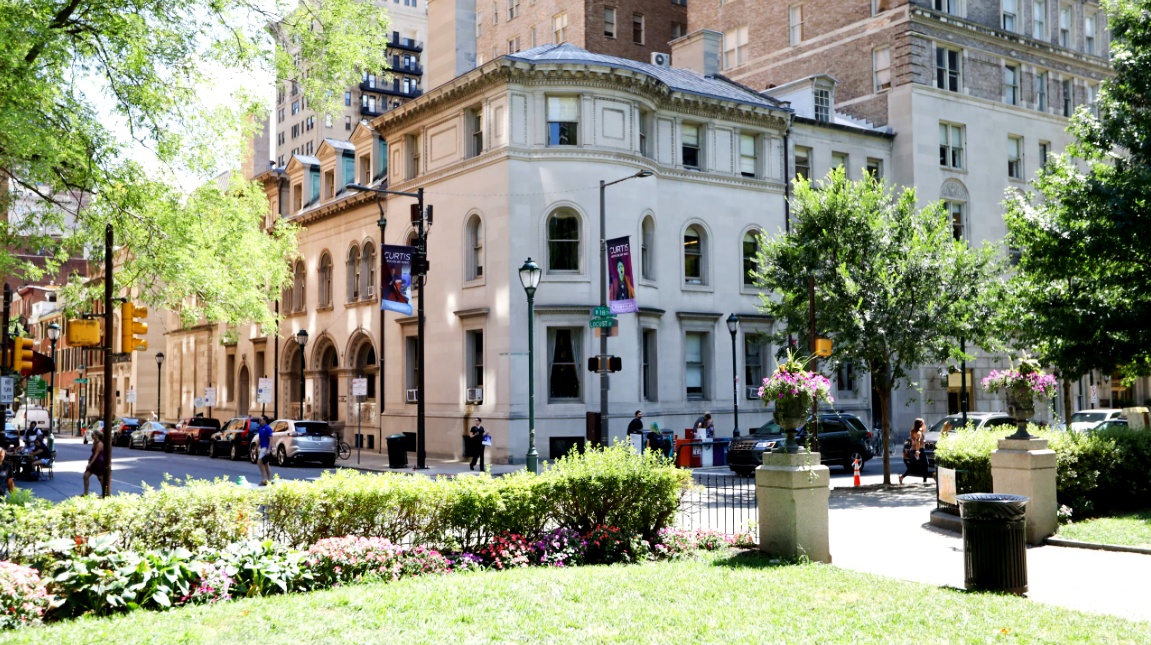
All students at the Curtis Institute of Music receive full-tuition scholarships based on merit, regardless of financial need. While full scholarships cover tuition, Curtis also offers need-based financial aid to help students pay for living expenses.
In the 2023–24 academic year, the annual scholarship value was $52,781 for undergraduate students and $65,536 for graduate students. These scholarships cover tuition and are renewed every year the student is enrolled.
Curtis has always encouraged artists of all ages to pursue their musical potential. To support elementary and secondary school students effectively, Curtis developed the Young Artist Initiative.
Curtis does not set minimum or maximum age limits for most of its programs. Students below college-entry age are considered candidates for the Curtis Diploma Program. They study music at Curtis while attending public or private middle or high school. When they reach college-entry age, they may transfer to the Bachelor of Music program.
Curtis’s acceptance rate varies by year and program but generally remains around 4%. However, don't be discouraged—many students initially doubt they can get in, yet they take the audition and now thrive at Curtis.
What kind of student thrives at Curtis?
Those who are curious, eager to learn, and able to apply what they learn; those who can manage a rigorous schedule of classes, chamber coaching, rehearsals, and performances while maintaining physical and mental health; and those who have a deep, lasting love for music and musical creation. Discipline, intellectual rigor, and openness to new musical ideas will serve students well in this vibrant environment.
Important Dates
Application deadline: November 26, 2024
Notification of audition invitation: January 2025
Live auditions: February–March 2025
Admission notifications: April 2025
Standardized test scores (TOEFL, etc.) due: June 2025
Estimated Annual Expenses (2023–2024, double occupancy)
Room and board: $21,035
Phone and internet: $510
Clothing: $460
Instrument maintenance: $1,530
Educational supplies: $3,000
Transportation: $1,275
Miscellaneous: $647
Subtotal: $28,457
Additional Fees
Comprehensive fee: $3,500
Health insurance: $3,344
Total (double room): $35,301
Single room: Approx. $38,278
Application Materials Required
Teacher recommendation letter
Two letters from musicians
Scanned original transcript(s)
Concert programs, award certificates (scanned)
Application fee: $150
Passport scan
Student family information
List of scholarships, awards, and cash prizes
(For vocal/opera applicants): Description of experience, roles, performance dates, organizations, musical activities, and professional training
Complete repertoire list (composer + title)
Audition repertoire list
Essay (prompt available post-application via MaMaggido system)
(For undergrad): SAT scores optional; TOEFL iBT: 79–80, IELTS: 6.5–7.0, Cambridge B2/C1/C2: 169
Pre-screening video
Fees
Piano Audition Requirements
Pre-screening Video:
Memorized performance
Recorded within 6 months before deadline
Each movement may be recorded separately, but must be unedited and continuous
Camera must clearly show hands and keyboard
Repertoire:
One complete Bach work
One of the following sonatas:
Any Mozart Sonata (except K.545)
Any Beethoven Sonata (except Op.49)
One of the following Haydn Sonatas:
A-flat major Hob.XVI:46
C minor Hob.XVI:20
E-flat major Hob.XVI:49
C major Hob.XVI:50
E-flat major Hob.XVI:52
Two Chopin solo works: one lyrical (slow), one virtuosic (fast)—no orchestral works
Video Guidelines:
Live Audition:
All pieces from pre-screening, plus one major solo work (10–12 minutes, no movements or concertos)
Memorized
Repertoire cannot be changed after 1 month before audition

